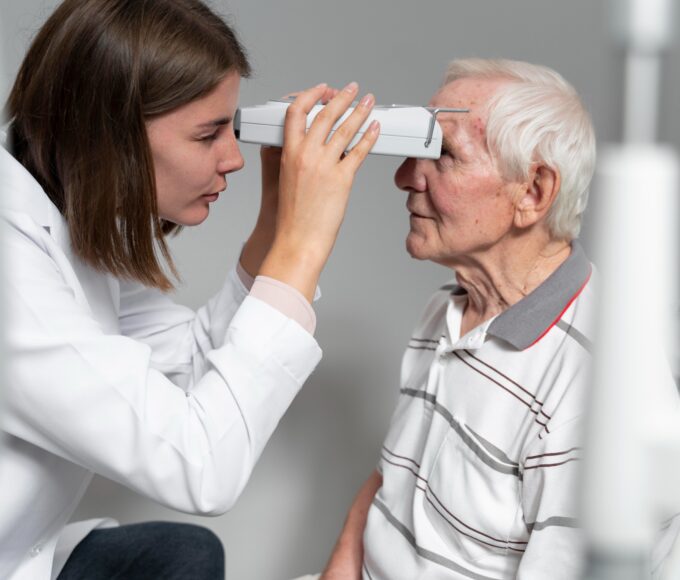Ketamine is no longer a fringe topic in mental health. Over the past decade, it’s moved from surgical wards and ERs to therapy rooms and private practice clinics. But if you’re a clinician, nurse, or therapist feeling curious-and a little overwhelmed-bout what ketamine training really involves, you’re not alone.I remember sitting in my first informational webinar about ketamine therapy, notebook in hand, thinking: How is this legal? Am I really qualified to offer this? It felt exciting and intimidating at the same time. But what I learned changed the way I thought about trauma, neuroplasticity, and healing itself.If you’re wondering whether ketamine training is right for you, or you’re confused by the explosion of courses and certifications out there, this guide will walk you through the essentials-without the jargon or the hype.
What Is Ketamine Training, Really?
Ketamine training refers to a structured educational process that teaches licensed professionals how to safely and ethically administer ketamine for therapeutic use. That includes everything from clinical protocols to trauma-informed preparation, integration techniques, and even medical screening.But here’s the thing: not all ketamine training is created equal.Some programs focus on medical administration (infusions, lozenges, intramuscular injections), while others are geared toward mental health practitioners who want to integrate ketamine into psychotherapy or psychedelic-assisted therapy.At its core, ketamine training equips you with the tools to:- Understand the pharmacology and legal framework of ketamine
- Support clients during altered states of consciousness
- Navigate risk, trauma history, and dissociation
- Create and hold a safe therapeutic container
- Integrate the experience after the session ends
Who Needs Ketamine Training?
Let’s break it down by profession:Psychotherapists and Counselors
Therapists working with trauma, depression, or anxiety clients can incorporate ketamine into talk therapy or integration work. Training is essential to understand how to hold space during and after the psychedelic experience.Psychiatrists and Physicians
Licensed prescribers often pursue ketamine training to begin offering ketamine-assisted treatment (KAT) in a clinical setting. Their training usually focuses more on medical safety, screening, and pharmacology.Nurses and Nurse Practitioners
Many ketamine clinics in the U.S. are staffed by NPs or RNs trained to administer infusions and monitor vital signs. For nurses, ketamine training bridges clinical expertise with trauma-informed care.Coaches and Somatic Practitioners
Although non-licensed individuals can’t legally administer ketamine, some pursue training to understand the landscape and offer post-session integration or emotional support (often alongside a licensed provider).What You’ll Learn in a Ketamine Training Program
Depending on the course you choose, ketamine training might take place over a weekend, several weeks, or a few months. The best programs are immersive and hands-on. Here’s what’s typically included:1. Pharmacology and Neuroscience
Understanding how ketamine works in the brain is foundational. You’ll explore:- NMDA receptor antagonism
- Effects on glutamate and neuroplasticity
- Dosing strategies and delivery methods
2. Legal and Ethical Frameworks
Ketamine is a Schedule III drug in the U.S., meaning it’s legal for medical use but must be handled with care. You’ll learn:- Who can prescribe ketamine and under what conditions
- Informed consent practices
- Licensing and documentation requirements
3. Client Preparation and Screening
This is where therapy and medicine meet. You’ll be trained to:- Conduct thorough intakes and mental health histories
- Identify red flags for dissociation, psychosis, or PTSD triggers
- Establish goals and intentions with clients
4. Holding Space During Sessions
This is perhaps the most human part of ketamine training-being present when a client goes inward. Training covers:- Grounding techniques
- Music and sensory settings
- Responding to client distress or emotional processing
5. Integration Practices
Integration is where transformation happens. You’ll explore:- Journaling prompts and therapeutic debriefs
- Somatic practices and movement
- Follow-up care and referrals
Popular Ketamine Training Providers (2024–2025)
The field is growing fast, but here are some trusted names offering ketamine training:- Polaris Insight Center – Known for their depth in trauma-informed ketamine therapy
- Fluence – Offers courses for clinicians and therapists integrating psychedelic-assisted therapy
- Ketamine Training Center – Focuses on ethical and clinical training for medical professionals
- PRATI (Psychedelic Research and Training Institute) – Offers immersive retreats and continuing education
Real-Life Story: From Hesitant to Confident
I spoke with Sarah, a licensed therapist in Oregon, who shared how she felt before signing up for a ketamine training course:“At first, I thought—this isn’t for me. I’m a traditional talk therapist, and ketamine sounded too… medical. But after my first experiential training, I was stunned. I saw how clients accessed core memories, grief, and release in a way that would’ve taken months to reach otherwise. I now feel more confident, more effective, and honestly, more hopeful for my clients.”It’s stories like Sarah’s that show why proper ketamine training is so transformative, for both clients and practitioners.















Leave a comment